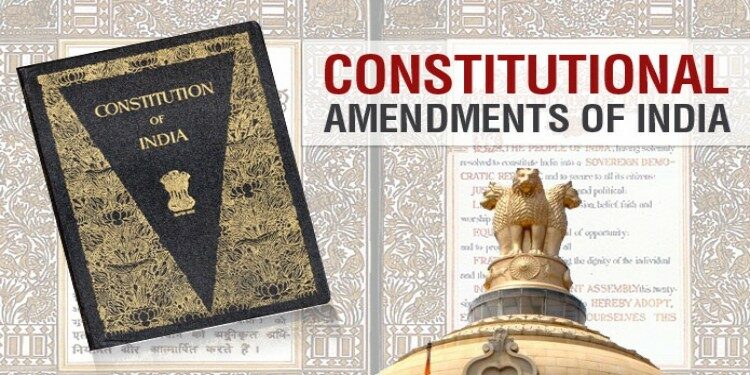Key proposals and objections to it-
- Congress MP from Anandpur Sahib, Punjab, Manish Tewari, who is a resident of Chandigarh has introduced the Private Member bill.
- In this bill the MP has sought the adding of a provision “provided that the ‘representative of the Union Territory of Chandigarh in the council of states shall be elected by an electoral college consisting of elected members of Municipal Corporation of Chandigarh constituted under the Punjab Municipal Corporation (Extension to Chandigarh) Act, 1994” in Article 80 of the Constitution in clause (5).
- He has also sought amendment of the Fourth Schedule of the Constitution with Entry 32, Chandigarh.
- However, as per the legal opinion submitted by the office of Senior Standing Counsel, Chandigarh, the elected Municipal Corporation Councillors do not form the electoral college for selecting a member for Upper house (Rajya Sabha) because it is beyond the powers of the Municipal Corporation.
- The office of the SSC also pointed out that between 1966 and 1990, MPs for Rajya Sabha in Delhi were selected by the members of the Metropolitan Council of Delhi.
- He also suggested that selecting Rajya Sabha MP, is beyond the listed scope of functions of the municipal corporation.
- If the functions of the civic body are to be extended beyond the listed scope of functions it would not be feasible and would go against the constitutional mandate of any such Municipal Corporation.
- As the civic body gave its assent to the amendment, UT Administration will send it to the Ministry of Home Affairs for further consideration.
- It will then be forwarded to the Parliament.
- In case, the Parliament accepts the amendment, 35 elected MC councillors will have a right to elect a person among them to the Rajya Sabha.
What does article 80 say?
- It deals with the composition of the council of states also called the Upper House and Rajya Sabha (Upper House).
- As per this article, The Council of States shall consist of
- Twelve members to be nominated by the President in accordance with the provisions of clause ( 3 ); and
- Not more than two hundred and thirty eight representatives of the States and of the Union territories
- The allocation of seats in the Council of States to be filled by representatives of the States and of the Union territories shall be in accordance with the provisions in that behalf contained in the fourth Schedule.
- The members to be nominated by the President under sub clause (a) of clause ( 1 ) shall consist of persons having special knowledge or practical experience in respect of such matters as the following, namely: Literature, science, art and social service.
- The representatives of each State in the council of States shall be elected by the elected members of the Legislative Assembly of the State in accordance with the system of proportional representation by means of the single transferable vote.
- The representatives of the Union Territories in the council of States shall be chosen in such manner as Parliament may by law prescribe.
What is a Private member bill?
The Private Member Bill is a bill introduced by a Member of Parliament (MP), who is not a minister. MPs sitting in the Opposition mostly bring Private Member Bills in the house.
List of UTS which have the right to send MPs to the Upper House, and UTs which don’t are-
- The UTs of Puducherry, Jammu and Kashmir and Delhi have representation in the Rajya Sabha, while Ladakh, Chandigarh, Dadra & Nagar Haveli, Daman and Diu, Andaman and Nicobar Islands and Lakshadweep are unrepresented.
- Puducherry has one representative in Rajya Sabha, Jammu and Kashmir has four representatives and Delhi is being represented by 3 MPs in the Upper House.
- In these three UTs, elected members of the Legislative Assembly form the electoral college for electing the MP for Rajya Sabha from their places.
















